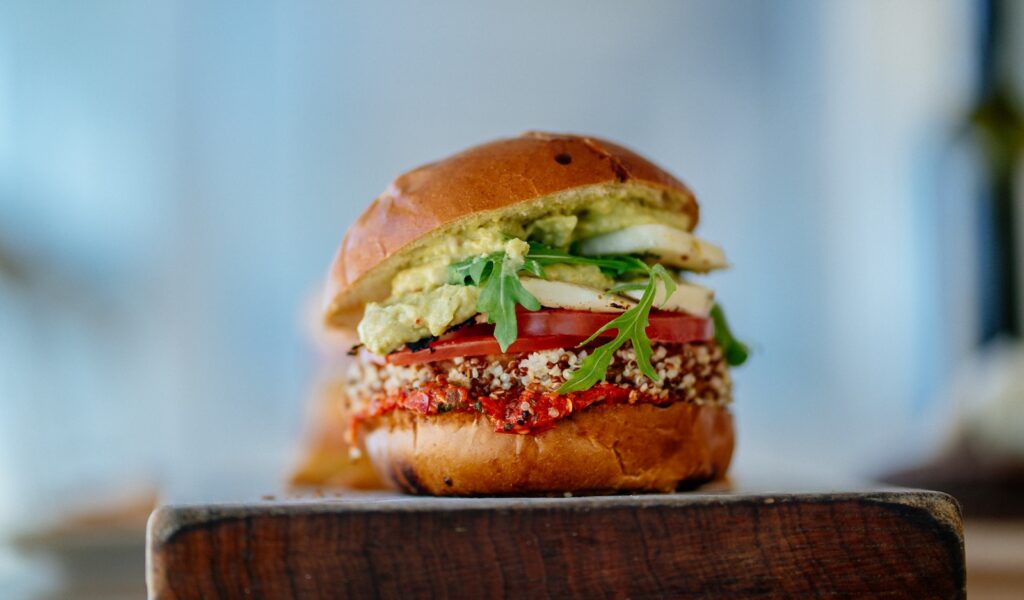Introduction
Embarking on a vegan journey can be an exciting and fulfilling lifestyle change, but it’s not without its challenges. From nutrient deficiencies to social misunderstandings, vegans often encounter various hurdles that test their commitment to this ethical way of living.
In this blog post, we will delve into 12 common struggles faced by those following a plant-based diet and offer practical solutions for overcoming them.
Key Takeaways
- Vegans often struggle with nutrient deficiencies, especially for vitamins and minerals commonly found in animal products. Careful meal planning and incorporating a variety of nutrient-rich foods can help vegans maintain a healthy diet.
- Social isolation and misunderstanding are common challenges faced by vegans. Finding supportive communities, educating others about veganism, and bringing your own meals can help overcome these obstacles.
- Difficulty finding vegan options while dining out, labelling concerns, time constraints for preparing meals, cravings for non-vegan foods, lack of support/resources, environmental/ethical considerations, and health risks associated with the diet are some other significant challenges that vegans encounter. Research ahead of time when eating out or grocery shopping; plan frequent nutritious snacks to combat unwanted urges; join an online community or meet-up group to connect with like-minded people are practical tips that can assist in overcoming these various hurdles on the path towards becoming a successful vegan.
Common Challenges Of Being A Vegan
Vegans face challenges such as nutrient deficiencies, social isolation and misunderstanding, difficulty finding vegan options while dining out, labelling and ingredient concerns, time constraints for preparing meals, cravings for non-vegan foods, health risks associated with the diet, lack of support and resources for meal planning and environmental and ethical issues.
Nutrient Deficiencies
One of the most significant challenges vegans face is ensuring they receive adequate nutrients in their diet. A plant-based diet eliminates several sources of essential vitamins and minerals commonly found in animal products, such as vitamin B12, iron, calcium, and omega-3 fatty acids.
For instance, vegans can obtain vitamin B12 through fortified plant-based milk or nutritional yeast. Iron from plants can be better absorbed when paired with foods rich in vitamin C, like oranges or bell peppers.
Other nutrients like calcium are readily available in leafy green vegetables and chia seeds; while flaxseeds, walnuts, and algae supplements serve as good sources for omega-3 fatty acids.

Social Isolation And Misunderstanding
Social isolation and misunderstanding are some of the most common challenges veganism poses. Vegans often feel isolated in social situations, particularly when dining out or attending events where non-vegan food is served.
This can lead to feelings of anxiety, frustration, and even loneliness. However, there are ways to overcome these challenges. For example, vegans can seek out like-minded individuals through online communities or local meet-ups.
By finding supportive people and being proactive about social situations, vegans can reduce the feeling of isolation that tends to come with this lifestyle choice.
Another way that vegans attempt to deal with social isolation is by bringing their own meals along wherever they go if vegan options aren’t available at the event (assuming it’s allowed).
In conclusion, while being a vegan has many benefits – ethical consumption practices (as well as health-wise) – it does present several significant challenges related to socializing at times.
Difficulty Finding Vegan Options While Dining Out
Another common challenge for vegans is finding suitable options when dining out. It can be frustrating to go out with friends or family and feel limited in what you can order off the menu.
However, more restaurants are now offering vegan options, and it’s essential to research ahead of time to find places that offer plant-based choices. You could also call ahead and ask about their vegan options or request a customized meal if none are available.
Another option is to choose ethnic cuisines that tend to have more plant-based dishes, such as Middle Eastern, Indian, or Thai food.
Labelling And Ingredient Concerns
Labelling and ingredient concerns are one of the biggest challenges that vegans face. It can be difficult to determine whether a product contains animal-derived ingredients, especially when they are not clearly labelled.
For example, some food additives like E120 or carmine may not be familiar to many people as being derived from insects.
To overcome this challenge, it’s important for vegans to read labels carefully and research unfamiliar ingredients. Some helpful tools include vegan apps like HappyCow or Is it Vegan? These apps can help identify vegan options at restaurants and simplify label reading by scanning barcodes for you directly from your phone camera.
Time And Preparing Meals
One of the biggest challenges for vegans is finding enough time to prepare meals. Unlike other diets, veganism requires more preparation and planning in order to meet nutrient needs.
Vegans need to ensure that they are getting enough protein, iron, vitamin B12, and calcium from their diet. This takes time and effort when it comes to meal planning.
Meal prepping is a popular solution for those who struggle with time management on a vegan diet. Taking one day out of the week to prepare all meals can help save time during busy weekdays.
It’s also important for vegans to incorporate foods that are quick and easy to make into their diets such as roasted vegetables or tofu scrambles.
Cravings For Non-Vegan Foods
The cravings for non-vegan foods can be tough for many people transitioning to a vegan diet. Giving up favourite comfort foods such as cheeseburgers, pizza, and ice cream can make it challenging to stick with the lifestyle change.
Vegans may also struggle with missing certain textures, flavours or smells of animal-based products. However, there are ways to overcome these cravings without giving in: finding vegan alternatives for the desired taste or texture, experimenting with spices and seasonings that mimic meaty flavours, or indulging in occasional treats like vegan sweets made without animal products.

Health Risks Associated With Veganism
One of the most significant challenges that vegans face is ensuring they get adequate amounts of essential nutrients. Some of the key nutrients in question include protein, iron, calcium, and vitamin B12.
In addition to this concern about getting enough essential nutrients from plant-based sources alone, there are also potential risks associated with the over-consumption of some substitutes for meat products like soy-based alternatives or highly processed foods.
However, these risks can be mitigated through proper meal planning and identifying balanced options that provide the necessary vitamins and minerals while avoiding excessive use of refined ingredients.
Lack Of Support And Resources
Going vegan is not always easy, and a lack of support and resources can make it even more challenging. Many people feel isolated on their vegan journey because they do not have anyone to share their experiences with or ask for advice and guidance.
Another issue that goes hand in hand with the lack of support is the difficulty in finding suitable products when shopping. The limited options available at grocery stores can be daunting, especially since some items are more expensive than their non-vegan counterparts.
However, there are ways to overcome these challenges. Joining vegan communities both offline and online could help individuals connect with like-minded people who offer practical advice and support as well as empathize with their struggles.
Environmental And Ethical Considerations
Veganism is not just a dietary choice but also a lifestyle that aims to reduce harm to animals and the environment. There are many ethical and environmental considerations associated with veganism, making it more than just eliminating animal products from one’s diet.
Additionally, vegans often consider the ethical implications of consuming animal products. and aim to live in alignment with their values by avoiding meat and other animal-derived materials.
Ultimately, choosing to go vegan comes with many responsibilities that extend beyond meal planning. It requires conscious awareness of how our daily choices impact other beings on Earth as well as the planet itself.
Dealing With Skepticism And Criticism
Dealing with skepticism and criticism can be one of the most challenging aspects of being a vegan. It’s not uncommon for non-vegans to question or even mock a person’s choice to follow a plant-based diet.
To overcome this challenge, it’s important to arm yourself with knowledge about the benefits of veganism and why you chose this lifestyle in the first place. Responding with confidence and compassion can also go a long way in dispelling any doubts that others may have.
It’s also helpful to remember that everyone has different motivations for going vegan – some do it for health reasons, while others do it out of concern for animal welfare and environmental conservation.
Overcoming Vegan Challenges
To overcome the challenges of being vegan, it’s important to properly supplement and plan balanced meals, seek support and community, research restaurant menus and options, read labels and know ingredient lists, meal prep and manage time effectively, explore vegan-friendly alternatives, identify personal values and motivations, and respond confidently with compassion to skeptics and critics.
Proper Supplementation And Balanced Meal Planning
To ensure adequate nutrition and prevent nutrient deficiencies, it is important for vegans to properly supplement their diet with key vitamins and minerals. Here are some tips for proper supplementation and balanced meal planning:
- Incorporate fortified foods like plant-based milks and breakfast cereals to obtain essential vitamins such as B12 and D.
- Consume a wide variety of fruits, vegetables, whole grains, legumes, nuts, and seeds to meet daily nutrient needs.
- Consider taking a daily multivitamin or specific supplements such as omega-3s or iron if recommended by a healthcare provider.
- Plan meals in advance to ensure they are well – balanced and contain all necessary macro and micro-nutrients.
- Seek the advice of a registered dietitian who can provide personalized recommendations for meeting nutritional needs on a vegan diet.
Proper supplementation and balanced meal planning are crucial for maintaining good health on a vegan diet. With careful planning and guidance from a qualified professional, it is possible to achieve optimal nutrition while adhering to ethical and environmental values.
Seeking Support And Community
One of the biggest challenges that vegans face is social isolation and a lack of understanding from others. It can be tough to stick with your dietary choices when those around you don’t share your values or lifestyle.
Joining vegan groups, attending events, and connecting with like-minded individuals through social media can help provide a sense of belonging and support.
Having people who understand what you’re going through and can offer advice or encouragement can make all the difference in staying committed to your vegan lifestyle. Additionally, finding local resources such as vegan-friendly restaurants or grocery stores can also help to ease feelings of isolation.
Researching Restaurant Menus And Options
Finding vegan options while dining out can be a challenging obstacle for many vegans. Fortunately, some restaurants now have dedicated vegan menus or include vegan options on their regular menu.
It’s worth doing some research before you go out to eat by checking the restaurant’s website or calling ahead.
If you’re traveling or visiting an unfamiliar city, researching vegan-friendly restaurants ahead of time can save you time and disappointment when it comes to mealtime. While not all restaurants may cater specifically to vegans, most will offer plant-based options that you can modify to fit your dietary needs.
Don’t shy away from asking the server any questions about food preparation or ingredients either- it’s better to be safe than sorry when it comes to avoiding animal products.

Reading Labels And Knowing Ingredient Lists
One of the biggest challenges that vegans face is ensuring that the foods they consume are free from animal products. This can be particularly difficult when it comes to packaged and processed foods, which often contain hidden animal-derived ingredients.
For example, an ingredient as seemingly harmless as gelatin is actually made from animal bones and skin, making it off-limits for those on a vegan diet. Similarly, many cheeses contain rennet, which is derived from the stomach lining of calves.
Meal Prepping And Time Management
One of the biggest struggles for vegans is finding time to prepare their meals and ensure they are meeting their nutritional needs. Here are some tips to help with meal prepping and time management:
- Plan your meals ahead of time to know what ingredients you need and when to prep them.
- Set aside a specific day or time each week for meal prepping, such as Sundays or Monday evenings.
- Invest in time – saving tools like a slow cooker or Instant Pot that can cook your meals while you’re away.
- Make large batches of food that can be frozen or refrigerated for quick and easy meals throughout the week.
- Keep healthy snacks on hand like raw veggies, nuts, and fruit for when you don’t have time to prepare a full meal.
It’s important to prioritize your health as a vegan and make sure you’re not sacrificing good nutrition due to lack of time. By implementing these tips, you can simplify your meal-prep process and ensure that your body is getting all the nutrients it needs on a plant-based diet.
Exploring Vegan-Friendly Alternatives
One of the biggest challenges for vegans is finding alternatives to some of their favorite non-vegan foods. Here are some vegan-friendly alternatives that can help:
- Meat substitutes: There are plenty of plant-based meat substitutes available nowadays, including burgers, sausages, and even chicken strips.
- Dairy substitutes: Vegans don’t consume dairy, so it’s important to find suitable substitutes. Options include almond milk, soy cheese, and coconut yogurt.
- Egg replacements: Eggs are often used as a binding agent in recipes. Luckily, there are several egg replacements available. Chia seeds and flaxseeds can be used as egg replacers in baking recipes.
- Sweeteners: Some sweeteners like honey and white sugar aren’t vegan-friendly. Instead, try using maple syrup or agave nectar.
- Condiments: Many condiments contain animal products or by-products. Look for vegan options like mayonnaise made with aquafaba (chickpea water) or ketchup with no added sugar.
By exploring these vegan-friendly alternatives, it’s easy to make delicious plant-based meals that everyone can enjoy while still adhering to a vegan lifestyle.

Identifying Personal Values And Motivations
Identifying personal values and motivations is crucial for maintaining a plant-based lifestyle. Knowing why you chose to go vegan can help you stay on track and make informed decisions.
For some, it may be ethical reasons, such as reducing animal cruelty or environmental impact.
To identify your personal values and motivations, take some time to reflect on why you decided to go vegan in the first place.
It’s also essential to find sources of support that align with your values. Joining online communities or attending local meetups can provide encouragement when faced with difficulties like social isolation or negative comments from peers.
Responding To Skeptics And Critics With Confidence And Compassion
One common challenge for vegans is having to deal with skepticism and criticism from others who may not understand their lifestyle choice. Responding to skeptics and critics with confidence and compassion can help maintain positive relationships and avoid unnecessary conflict.
When responding to skeptics or critics, it can be helpful to share personal experiences or information about the benefits of a vegan lifestyle in a non-confrontational manner.
For example, you could discuss how your own health has improved since transitioning to plant-based foods or talk about how reducing animal products helps reduce environmental impact.
Ultimately, responding with confidence and compassion when faced with criticism or skepticism can help promote understanding and respect between individuals with different lifestyles and perspectives.
Additional Challenges For New Vegans
New vegans may struggle with learning how to read labels and identify animal products or overcoming cravings and temptations, managing food-related anxiety and guilt, as well as handling criticism or negativity from others.
Learning To Read Labels And Identify Animal Products
As a vegan, learning to read labels and identify animal products is an essential skill. Many food items have hidden animal-derived ingredients that are easy to miss.
By carefully reading labels, vegans can avoid accidentally consuming non-vegan foods.
Taking the time to research which ingredients aren’t vegan-friendly will help vegans make informed choices when grocery shopping and dining out.
Overcoming Cravings And Temptations
Cravings for non-vegan foods can be one of the most challenging aspects of adopting a vegan lifestyle. Many people are used to consuming meat, dairy, and other animal products regularly, making it difficult to resist those temptations.
However, there are ways to overcome these cravings and stick with a vegan diet long-term. One strategy is to explore vegan-friendly alternatives that satisfy similar tastes and textures as non-vegan foods.
Another way to conquer cravings is by planning ahead and having healthy snacks readily available. For example, keeping fresh fruits nearby can aid in fighting sugary junk food urges.
Additionally, incorporating nutrient-dense meals into your daily routine ensures you feel full which ultimately eliminates hunger-induced cravings throughout the day.If feeling tempted in social situations where non-vegan options dominate menus when dining out at restaurants with friends/family/colleagues try calling ahead of time to scout out vegan options on the menu before arriving at the venue.Researching a restaurant menu beforehand not only helps alleviate stress but saves time so you can focus on enjoying company rather than worrying about what you’re going eat.
Managing Food-Related Anxiety And Guilt
Feeling anxious or guilty about your food choices is a common struggle for many vegans, especially those who are new to the lifestyle. It can be challenging to navigate social situations where there may not be any vegan options or when you accidentally consume something that contains animal products.
However, it’s important to remember that perfection is not always attainable and mistakes happen.
To manage food-related anxiety and guilt, seek support from other vegans who understand what you’re going through. Join online communities or local vegan groups where you can connect with like-minded individuals who share similar experiences.
Additionally, practice self-care techniques such as meditation or journaling to help reduce stress levels.
Handling Criticism Or Negativity From Others
One of the most challenging aspects of being a vegan is dealing with criticism or negativity from others. Vegans are often met with skepticism, criticism, and even hostility when discussing their lifestyle choices with non-vegans.
To handle criticism or negativity from others as a vegan, it’s essential to respond calmly and confidently. It’s important to remember that everyone has different beliefs and values, so it’s crucial not to take negative comments personally.
Additionally, seeking support from other vegans can provide a sense of community and help overcome feelings of isolation or discouragement.
Maintaining A Positive Mindset And Conclusion
In conclusion, being a vegan comes with its own set of challenges. From social isolation to nutrient deficiencies and ethical considerations, the journey towards a plant-based lifestyle can be daunting.
However, with proper meal planning, research and support from fellow vegans, you can overcome these challenges. Remember to maintain a positive mindset throughout your journey and always choose compassion over criticism when dealing with skeptics or critics.
FAQ’s
Q: What is a vegan diet?
A: A vegan diet consists of plant-based foods and excludes animal products such as meat, dairy, eggs, and honey.
Q: What are some common nutrient deficiencies on a vegan diet?
A: Some common nutrient deficiencies on a vegan diet include vitamin B12, calcium, omega-3 fatty acids, and iron.
Q: Is it difficult to get enough protein on a vegan diet?
A: No, it is not difficult to get enough protein on a vegan diet as there are many plant-based protein sources such as lentils, tempeh, and whole grains.
Q: Can a vegan diet provide health benefits?
A: Yes, a vegan diet can provide health benefits such as reducing the risk of type 2 diabetes and heart disease.
Q: What are some common reasons people become vegan?
A: Some common reasons people become vegan include animal suffering, health reasons, and environmental concerns.
Q: Why do people struggle to stay vegan?
A: People may struggle to stay vegan due to a lack of support, difficulty finding vegan options, and challenges in social situations.
Q: Can a vegan diet provide enough iron?
A: Yes, a vegan diet can provide enough iron through plant-based sources such as lentils, spinach, and whole grains. However, it is important to ensure adequate absorption by consuming vitamin C-rich foods alongside iron-rich foods.
Q: Do vegans need to supplement with vitamin B12?
A: Yes, vegans should supplement with vitamin B12 as it is primarily found in animal products and deficiency can lead to anemia and nerve damage.
Q: Can a vegan diet include dairy products?
A: No, a vegan diet excludes all animal products including dairy products.
Q: What are some good vegan sources of calcium?
A: Some good vegan sources of calcium include tofu, fortified plant milks, almonds, and leafy greens like kale.

Leave a Reply